Find Help
More Items From Ergsy search
-
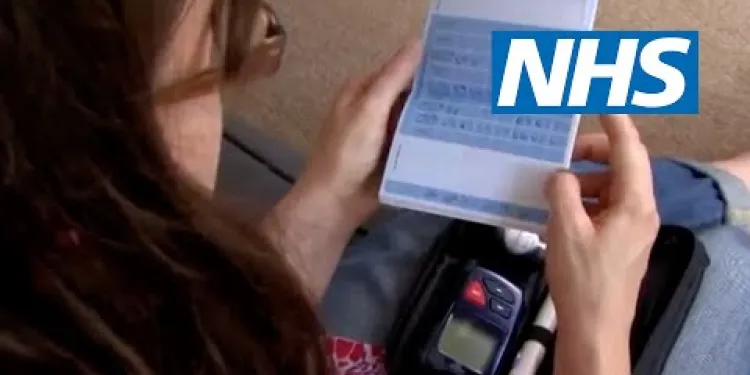
Gestational diabetes | NHS
Relevance: 100%
-
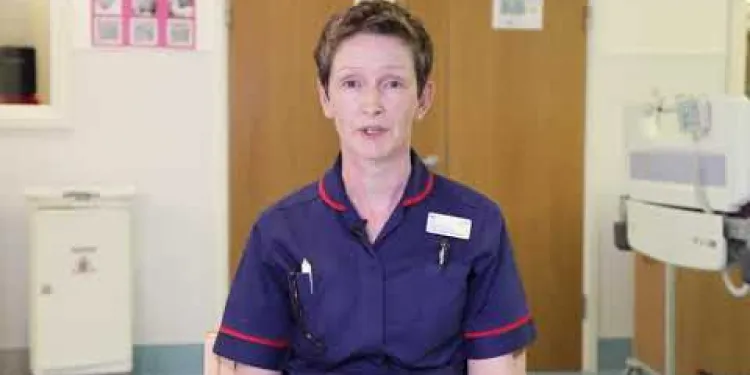
Gestational Diabetes during pregnancy
Relevance: 96%
-
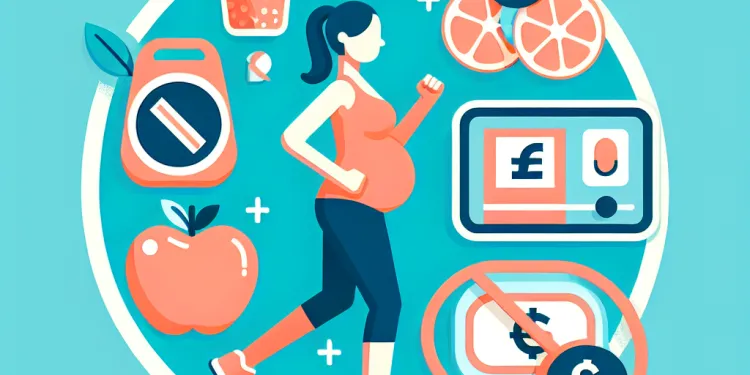
Can exercise help prevent gestational diabetes?
Relevance: 88%
-

What causes Type 2 Diabetes?
Relevance: 42%
-
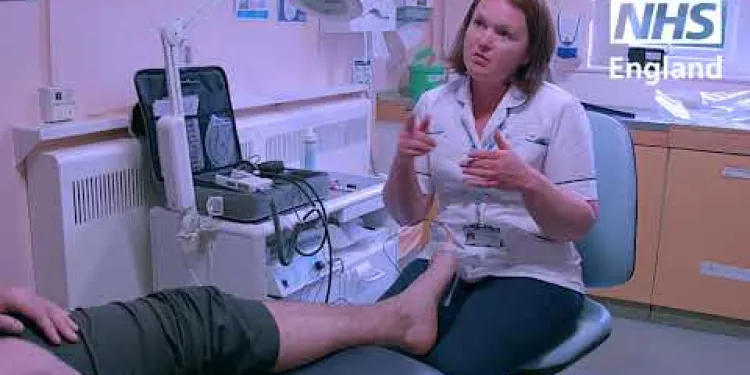
Improving outcomes for people with diabetes
Relevance: 39%
-

How is Type 2 Diabetes diagnosed?
Relevance: 38%
-
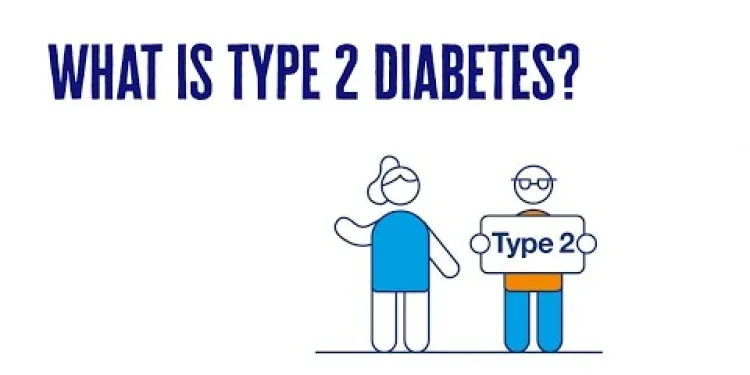
What Is Type 2 Diabetes? | 2 Minute Guide | Diabetes UK
Relevance: 37%
-
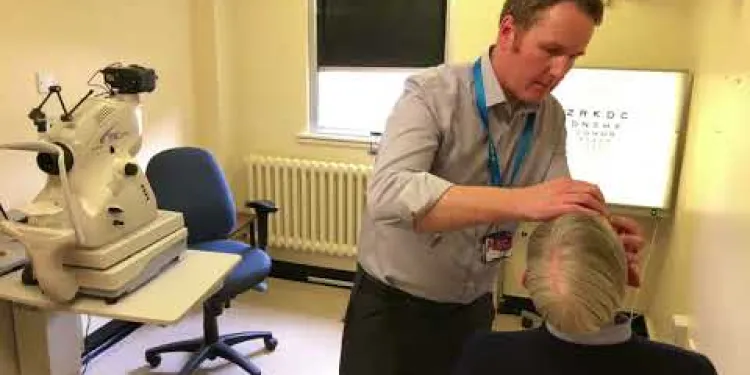
Derbyshire Diabetic Eye Screening - Diabetic Eye Screening
Relevance: 36%
-

Type 1 Diabetes supporting adults to manage Type 1 diabetes
Relevance: 36%
-
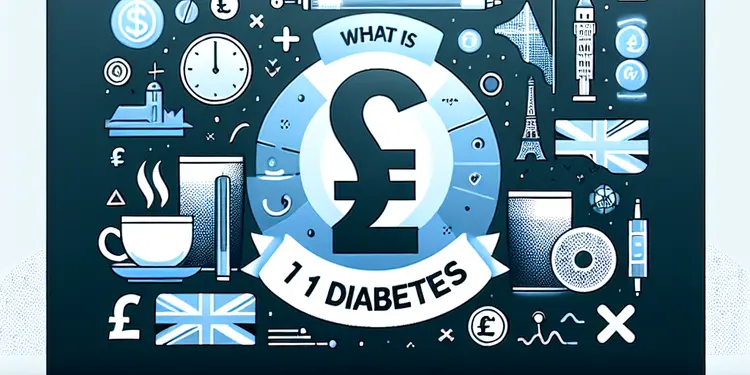
What is type 1 diabetes?
Relevance: 35%
-

Is Type 2 Diabetes hereditary?
Relevance: 35%
-

What is type 1 diabetes?
Relevance: 35%
-

Diabetes Eye Screening
Relevance: 35%
-
What is Barbie Doll Diabetes?
Relevance: 34%
-

Is Ozempic suitable for type 1 diabetes?
Relevance: 34%
-
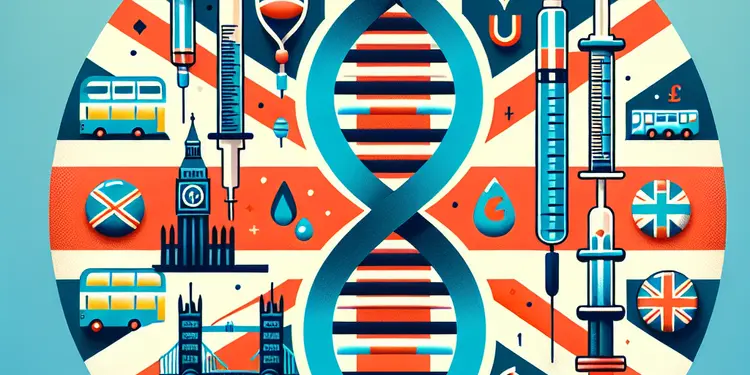
Is there a genetic predisposition to type 1 diabetes?
Relevance: 34%
-
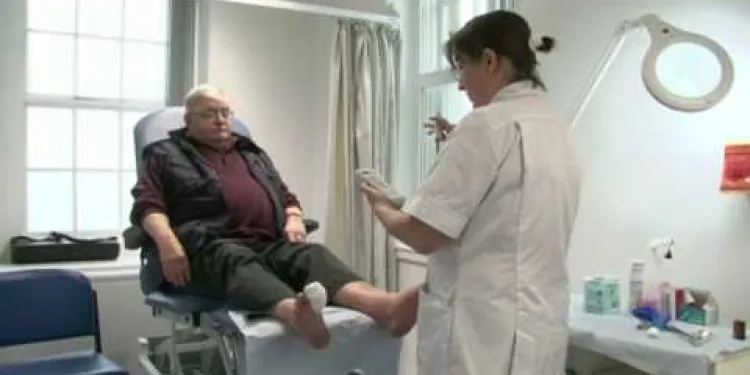
Diabetic Foot Conditions Podiatrist
Relevance: 33%
-

Can Type 2 Diabetes go away?
Relevance: 33%
-
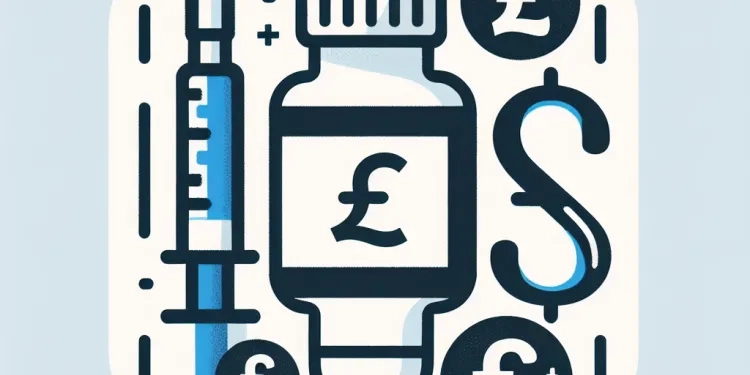
Is Teplizumab used to treat diabetes?
Relevance: 33%
-

Can Type 2 Diabetes be prevented?
Relevance: 33%
-

What are the symptoms of Type 2 Diabetes?
Relevance: 33%
-

Can I have sugar if I am diabetic?
Relevance: 33%
-

How often should I check my blood glucose levels?
Relevance: 33%
-
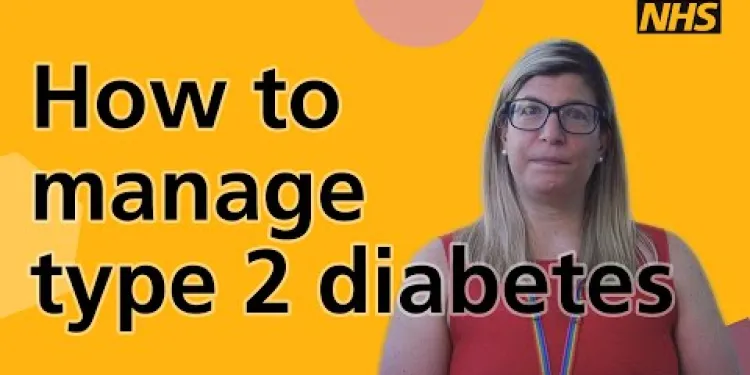
How to manage type 2 diabetes
Relevance: 33%
-

How is Type 2 Diabetes treated?
Relevance: 33%
-

Can Mounjaro be used in type 1 diabetes?
Relevance: 32%
-

What complications are associated with Type 2 Diabetes?
Relevance: 32%
-

NHS Diabetes Prevention Programme; Preventing Type 2 and improving outcomes for people with diabetes
Relevance: 32%
-
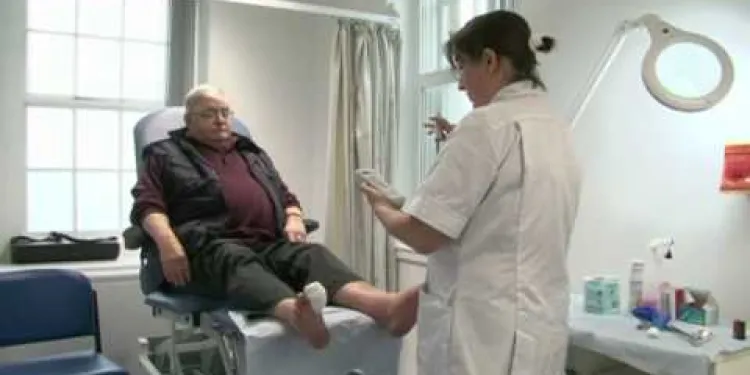
Diabetes Care - Preventing Amputations
Relevance: 32%
-

Can stress affect my Type 2 Diabetes?
Relevance: 32%
-
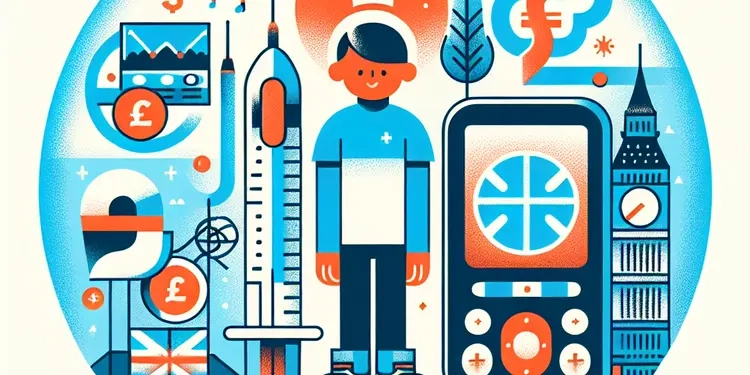
Should I screen my child for type 1 diabetes?
Relevance: 32%
-
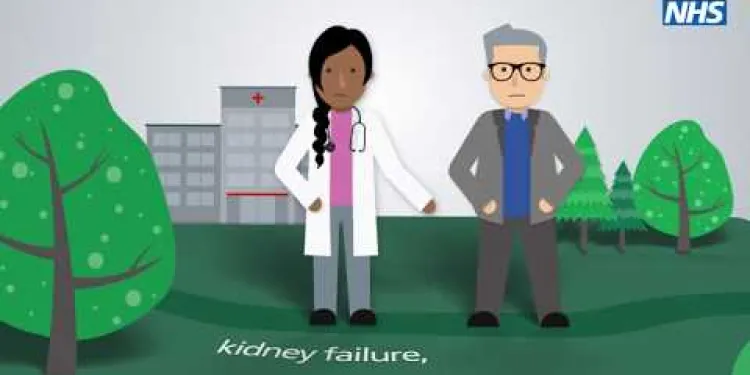
The NHS Diabetes Prevention Programme story
Relevance: 32%
-

What is the role of insulin in Type 2 Diabetes?
Relevance: 32%
-
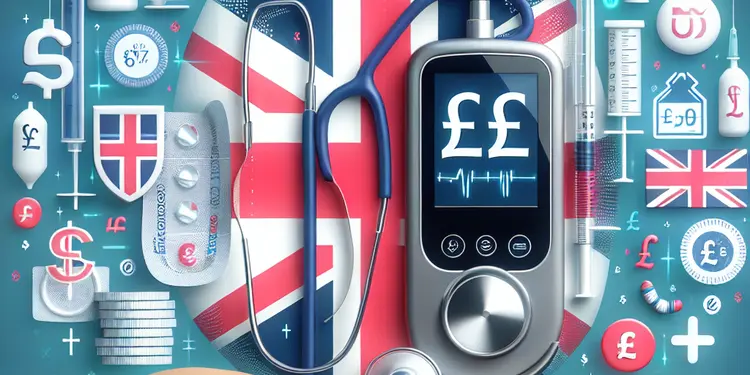
What are the limitations of type 1 diabetes screening?
Relevance: 32%
-

What is the difference between type 1 and type 2 diabetes?
Relevance: 31%
-
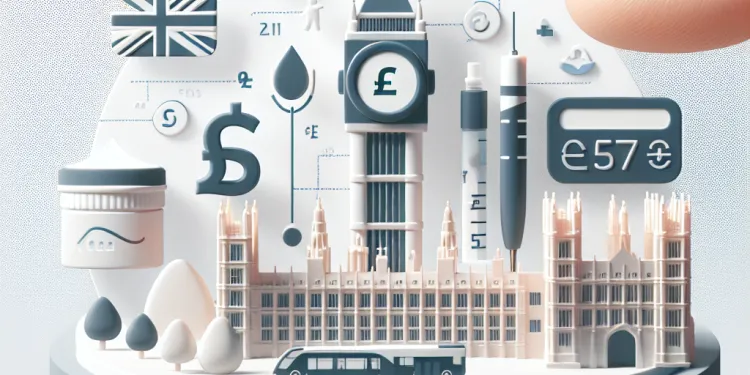
Is Wegovy used for type 2 diabetes management?
Relevance: 31%
-

Are heart attack symptoms different for people with diabetes?
Relevance: 31%
-
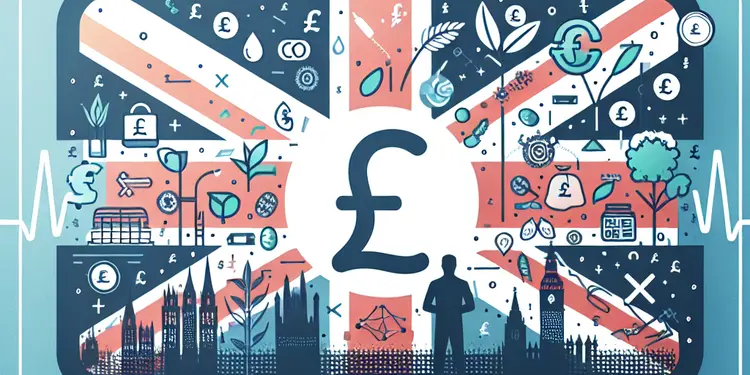
Can environmental factors contribute to type 1 diabetes?
Relevance: 31%
-
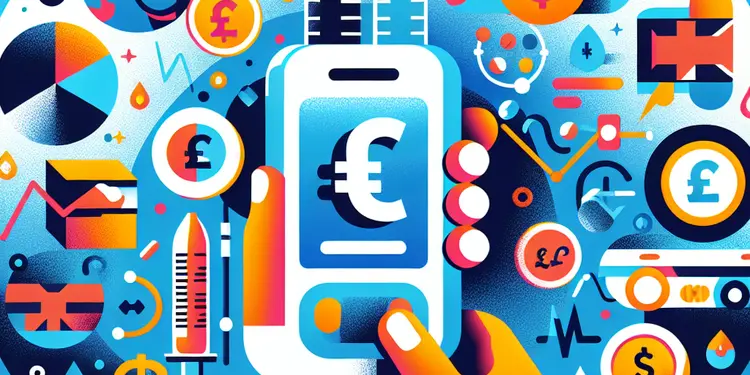
What does screening for type 1 diabetes involve?
Relevance: 31%
-
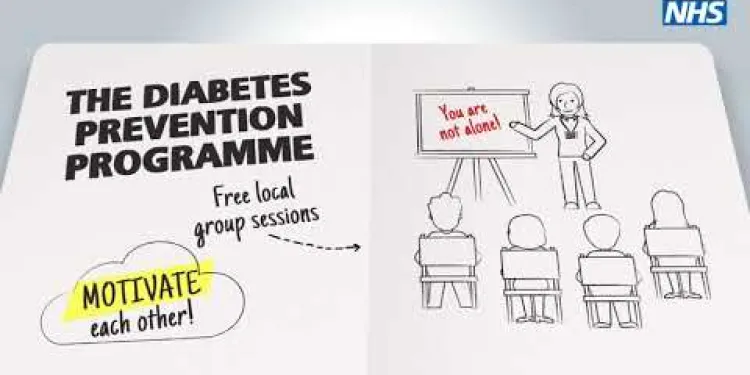
Hansa's story - The NHS Diabetes Prevention Programme
Relevance: 31%
Gestational Diabetes | NHS
Introduction to Gestational Diabetes
Gestational diabetes is a condition characterized by high blood sugar levels that develop during pregnancy and usually disappear after giving birth. It can occur at any stage of pregnancy but is more common in the second or third trimester. It is essential to manage gestational diabetes to ensure the health and safety of both the mother and the baby.Causes and Risk Factors
The exact cause of gestational diabetes is not fully understood, but it's believed to be related to the hormonal changes of pregnancy, which can affect the body's ability to use insulin effectively. Key risk factors include being overweight or obese, having a family history of diabetes, being over 25 years old, or having had gestational diabetes in a previous pregnancy. Other factors include certain ethnic backgrounds, such as South Asian, Black, or African-Caribbean.Symptoms and Diagnosis
Gestational diabetes often doesn't cause noticeable symptoms, which is why screening is so important. However, some women may experience increased thirst, frequent urination, fatigue, and dry mouth. Diagnosis is usually made through screening tests such as the oral glucose tolerance test (OGTT), which is typically conducted between 24 and 28 weeks of pregnancy. The test measures the body's ability to process glucose over a specific period.Management and Treatment
Managing gestational diabetes involves lifestyle changes and sometimes medication. Key strategies include adopting a healthy diet that controls blood sugar levels, engaging in regular physical activity, and monitoring blood sugar levels frequently. In some cases, insulin injections or oral medications may be required. Regular prenatal check-ups are crucial to monitor the baby's development and promptly address any issues.Potential Complications
If not managed properly, gestational diabetes can lead to complications for both the mother and the baby. Potential complications for the mother include high blood pressure, preeclampsia, and a higher likelihood of cesarean delivery. For the baby, risks include macrosomia (being larger than normal), premature birth, respiratory distress syndrome, and low blood sugar levels after birth.Postpartum Care and Future Risk
After giving birth, blood sugar levels usually return to normal. However, women who had gestational diabetes are at a higher risk of developing type 2 diabetes later in life. It's important to maintain a healthy lifestyle, have regular check-ups, and possibly undergo diabetes screening every few years. Breastfeeding is also encouraged as it offers numerous health benefits to both mother and baby.Support and Resources
The NHS offers comprehensive support for managing gestational diabetes. This includes access to dietitians, diabetes nurse specialists, and regular monitoring throughout pregnancy. Support groups and educational resources are also available to help expectant mothers navigate this condition and ensure a healthy pregnancy. For additional information, consult your healthcare provider or visit the NHS website.Gestational Diabetes | NHS
What is Gestational Diabetes?
Gestational diabetes happens when you have high blood sugar during pregnancy. It usually goes away after the baby is born. This can happen at any time, but it’s more common in the later stages of pregnancy. It is important to manage it to keep both the mother and baby healthy.Why Does Gestational Diabetes Happen?
We don't know exactly why gestational diabetes happens. It may be because of changes in pregnancy hormones affecting how insulin works in your body. You are more likely to get it if you are overweight, over 25 years old, have a family member with diabetes, or have had it in a past pregnancy. Some ethnic groups, like South Asian and African-Caribbean, are also at higher risk.Signs and How to Know if You Have It
Gestational diabetes might not show any clear signs. This is why doctors check for it. Some women might feel very thirsty, tired, or need to pee a lot. Doctors test for it using a special sugar test between 24 and 28 weeks of pregnancy.How to Manage and Treat It
To manage gestational diabetes, you might need to change your diet, exercise regularly, and check your blood sugar levels often. Sometimes, medication or insulin injections are necessary. You will need regular check-ups to make sure the baby is growing well and address any issues quickly.What Can Happen If It's Not Managed?
If gestational diabetes is not controlled, it can cause problems for both mother and baby. Mothers might have high blood pressure or need a C-section. Babies could be larger than normal, come early, have breathing problems, or have low blood sugar at birth.After the Baby is Born and Future Risks
After the baby is born, blood sugar levels usually go back to normal. But women who had gestational diabetes have a greater chance of getting type 2 diabetes later. Living a healthy life, having regular doctor visits, and health checks are important. Breastfeeding is also good for both mother and baby.Where to Get Help and Information
The NHS provides help with managing gestational diabetes. This includes seeing a dietitian and nurse specialists, as well as regular pregnancy checks. There are also support groups and information to help with this condition. For more advice, speak with your healthcare provider or visit the NHS website for information.Frequently Asked Questions
What is gestational diabetes?
Gestational diabetes is a type of diabetes that can develop during pregnancy. It causes high blood sugar levels and can affect the health of both the mother and the baby.
Who is at risk of developing gestational diabetes?
You're more likely to develop gestational diabetes if you have a body mass index (BMI) of 30 or more, previously had gestational diabetes, have given birth to a large baby before (4.5kg or over), have a close family member with diabetes, or are of South Asian, Black, African-Caribbean, or Middle Eastern origin.
What are the symptoms of gestational diabetes?
Most women with gestational diabetes do not have any symptoms. However, some may experience increased thirst, more frequent urination, fatigue, and a dry mouth.
How is gestational diabetes diagnosed?
Gestational diabetes is usually diagnosed through a blood test known as the oral glucose tolerance test (OGTT), which is typically performed between 24 and 28 weeks of pregnancy.
Can gestational diabetes affect my pregnancy?
Yes, gestational diabetes can increase the risk of complications such as pre-eclampsia, premature birth, and having a large baby, which might lead to complications during delivery.
How can I manage gestational diabetes?
Gestational diabetes can often be managed through healthy eating, regular exercise, and monitoring blood sugar levels. In some cases, medication or insulin injections may be necessary.
Will gestational diabetes affect my baby?
If not properly managed, gestational diabetes can lead to high birth weight, premature birth, respiratory distress syndrome, low blood sugar levels, and an increased risk of developing type 2 diabetes later in life.
Can gestational diabetes be prevented?
While it may not be possible to prevent gestational diabetes entirely, maintaining a healthy weight, eating a balanced diet, and exercising regularly before and during pregnancy can help reduce your risk.
Do I need to follow a special diet if I have gestational diabetes?
Yes, a balanced diet that includes the right amounts of carbohydrates, proteins, and fats is crucial. It's important to avoid sugary foods and drinks, and eat regular, smaller meals to keep blood sugar levels stable.
Will gestational diabetes go away after pregnancy?
In most cases, gestational diabetes goes away after giving birth. However, women who have had gestational diabetes are at higher risk of developing type 2 diabetes in the future.
How often should I check my blood sugar levels?
Your healthcare provider will give you specific guidelines, but generally, you may need to check your blood sugar levels several times a day, including before and after meals.
What kind of physical activity is safe during pregnancy?
Moderate activities such as walking, swimming, and prenatal yoga are generally safe and can help manage blood sugar levels. Always consult your healthcare provider before starting any new exercise routine.
Will I need to deliver my baby early if I have gestational diabetes?
Most women with gestational diabetes can go to full term, but your healthcare provider will monitor your pregnancy closely and make recommendations based on your specific situation.
What should I do if my blood sugar levels are too high?
Contact your healthcare provider for advice. They may suggest changes to your diet, exercise routine, or medication.
Can I breastfeed if I had gestational diabetes?
Yes, breastfeeding is encouraged as it can help regulate your baby's blood sugar levels and reduce your and your baby's risk of developing diabetes in the future.
What is Gestational Diabetes?
Gestational diabetes is a type of diabetes that some women get during pregnancy. This means their body can't use sugar in the right way. It usually goes away after the baby is born.
Here are some tips that might help:
- Talk to your doctor about it.
- Watch what you eat and choose healthy foods.
- Exercise regularly, like by going for a walk.
- Check your blood sugar as the doctor tells you.
If you need help reading this, ask someone to read it with you.
Gestational diabetes is a kind of diabetes. It can happen when someone is pregnant. This means there is too much sugar in the blood. It can make the mother and the baby sick.
Who can get gestational diabetes?
You are more likely to get gestational diabetes if:
- You have a high body weight (BMI of 30 or more).
- You had gestational diabetes before.
- You had a big baby before (4.5kg or more).
- Someone close in your family has diabetes.
- You are from South Asian, Black, African-Caribbean, or Middle Eastern backgrounds.
It might help to talk to a doctor. You can also use tools like pictures or diagrams to understand better. Make sure to ask questions if you need help.
What happens if you have gestational diabetes?
Gestational diabetes is when you get diabetes while you are pregnant. It can make you feel:
- Very thirsty
- Need to wee a lot
- Tired
Sometimes there are no signs. It is important to visit the doctor who can do a blood test.
If reading is hard, ask someone for help or use online tools to read aloud.
Most women with diabetes when they are pregnant do not feel sick. But some might feel very thirsty, need to pee a lot, feel very tired, or have a dry mouth.
How do doctors find out if someone has gestational diabetes?
Doctors can do special tests to see if a pregnant person has gestational diabetes. One common test is called the oral glucose tolerance test. In this test, the person drinks a sweet drink, and then the doctor takes their blood to check how much sugar is in it. If the sugar level is too high, it might mean they have gestational diabetes.
Here are some tips to help understand:
- Ask your doctor to explain tests slowly and clearly.
- Bring a friend or family member to help you understand the information.
- Write down any questions you have before visiting the doctor.
Doctors find out if you have gestational diabetes with a blood test. This test is called the oral glucose tolerance test, or OGTT. You usually get this test when you are 24 to 28 weeks pregnant.
A support tool you can use is reading out loud to understand better. You can also ask someone to help explain things if you find it hard. Reading together with a friend or family member can make it easier too.
Can gestational diabetes affect my pregnancy?
Yes, gestational diabetes can affect your pregnancy.
This means your body has trouble using sugar well when you are pregnant.
Talk to your doctor. They can help you manage it.
Eating healthy, gentle exercise, and checking your blood sugar can help you and your baby stay well.
Yes, if you have gestational diabetes, there can be problems like high blood pressure called pre-eclampsia. This might also mean the baby is born too early or is too big, which can make giving birth harder.
How can I handle diabetes when pregnant?
Getting diabetes when you are going to have a baby is called "gestational diabetes."
Here are some ways to handle it:
- Eat healthy foods that your doctor suggests.
- Check your sugar levels with a small machine. A nurse can show you how.
- Do some gentle exercise, like walking, if your doctor says it is okay.
- Talk to your doctor about how you feel.
These tools might help:
- Keeping a food diary so you remember what you ate.
- Using apps to help remind you to check your sugar.
Always ask a doctor or nurse if you need more help.
Some pregnant people get a condition called gestational diabetes. This means they have high sugar levels in their blood.
There are ways to help manage this:
- Eat healthy foods.
- Exercise regularly.
- Check your blood sugar levels often.
Sometimes, people may also need medicine or insulin shots to help.
Will gestational diabetes affect my baby?
If you have gestational diabetes, it means you have high blood sugar during pregnancy. It's important to take care of your health to keep your baby safe.
Here are some things you can do:
- Eat healthy food and balance your meals.
- Exercise regularly if your doctor says it's okay.
- Check your blood sugar levels often.
- Take any medicine your doctor gives you.
Your doctor or nurse will help you and answer your questions. You can also talk to a dietitian or join a support group. Remember, you are not alone!
If a mom gets diabetes when she is pregnant and it's not taken care of, it can cause problems. The baby might be born too big, come too early, have trouble breathing, have low sugar levels in the blood, or might get a kind of diabetes called type 2 diabetes when they get older.
To help make reading easier, you can try some tools or techniques like using a ruler to follow along the lines, reading out loud, or breaking paragraphs into smaller parts.
Can we stop gestational diabetes from happening?
Gestational diabetes is a type of diabetes some women get when they are pregnant.
Here are some simple things you can do to help prevent it:
- Eat healthy foods like fruits and vegetables.
- Exercise a little every day, like walking or playing outside.
- Talk to your doctor about your health and follow their advice.
Remember, you can ask your doctor or nurse for more help if you need it.
You might not be able to stop gestational diabetes completely, but you can do things to lower your chances. Staying at a healthy weight, eating healthy foods, and doing exercises before and while you are pregnant can help.
Do I need to eat differently if I have diabetes when pregnant?
If you have diabetes when you are pregnant, it is important to eat healthy food. This helps both you and your baby.
Here are some easy tips:
- Eat lots of fruits and vegetables.
- Choose whole grain bread and rice.
- Drink water instead of soda.
- Eat small meals throughout the day.
It can be helpful to talk to a doctor or a nurse. They can give you advice on what to eat.
Yes, eating healthy food is very important. You need to eat the right amount of foods like bread, meat, and butter. Try not to eat too many sweets or drink sugary drinks. Eat small meals often to keep your blood sugar just right.
Does pregnancy diabetes go away after having the baby?
Pregnancy diabetes is when you have high sugar in your blood while you are pregnant. It is important to take care of it.
Most of the time, pregnancy diabetes goes away after you have the baby. It is good to talk to your doctor to make sure.
Using a blood sugar meter can help you check your sugar levels at home. Eating healthy foods and staying active are also good ways to take care of your body.
Most of the time, gestational diabetes disappears after a baby is born. But women who had gestational diabetes might get type 2 diabetes later in life.
How often should I check my blood sugar levels?
Here is how to check your blood sugar:
- Ask your doctor when to check your blood sugar.
- Some people check their blood sugar every day.
- Other people check only once a week.
- Write down your blood sugar levels. This can help you see how you are doing.
- Use a blood sugar checker. A nurse or doctor can show you how to use it.
Remember to ask for help if you need it!
Your doctor will tell you what to do. But usually, you will need to check your blood sugar several times each day. This means checking before and after you eat.
What types of exercise are safe when you are pregnant?
Doing simple exercises like walking, swimming, and yoga for pregnant women is usually safe. These activities can help keep your blood sugar healthy. But before you start any new exercise, talk to your doctor.
Will my baby need to come early if I have diabetes during pregnancy?
Most women with gestational diabetes can have their baby at full term. This means they can have their baby around the date they expect. Your doctor or nurse will check your health a lot and tell you what to do based on how you are doing.
What to Do if My Blood Sugar is Too High?
If your blood sugar is too high, follow these easy steps:
- Talk to a Doctor: Ask a doctor or nurse for help. They can give you advice.
- Check Your Blood Sugar: Use a blood sugar meter if you have one. It tells you your sugar level.
- Drink Water: Drink water slowly. It helps to lower blood sugar.
- Eat Healthy: Have foods with less sugar. Fruit and vegetables are good choices.
- Move Around: Walk or do gentle exercises. It can help to bring sugar levels down.
Remember, always reach out to someone you trust if you need more help.
Talk to your doctor or nurse for help. They might tell you to eat different foods, do some exercise, or take medicine.
Can I breastfeed if I had diabetes during pregnancy?
Yes, you can still breastfeed if you had diabetes when you were pregnant. Breastfeeding is good for you and your baby. It can help keep both of you healthy.
If you have questions, a nurse or doctor can help. They know a lot about breastfeeding and can give you advice.
Using breastfeeding pillows might make breastfeeding easier. You can also talk to other moms who are breastfeeding. This can help too.
Yes, breastfeeding is a good idea. It helps keep your baby's blood sugar levels just right. It can also help you and your baby stay healthy and avoid diabetes later on.
Useful Links
Have you found an error, or do you have a link or some information you would like to share? Please let us know using the form below.
-->
This website offers general information and is not a substitute for professional advice.
Always seek guidance from qualified professionals.
If you have any medical concerns or need urgent help, contact a healthcare professional or emergency services immediately.
Some of this content was generated with AI assistance. We’ve done our best to keep it accurate, helpful, and human-friendly.
- Ergsy carfully checks the information in the videos we provide here.
- Videos shown by Youtube after a video has completed, have NOT been reviewed by ERGSY.
- To view, click the arrow in centre of video.
- Most of the videos you find here will have subtitles and/or closed captions available.
- You may need to turn these on, and choose your preferred language.
- Go to the video you'd like to watch.
- If closed captions (CC) are available, settings will be visible on the bottom right of the video player.
- To turn on Captions, click settings .
- To turn off Captions, click settings again.
More Items From Ergsy search
-

Gestational diabetes | NHS
Relevance: 100%
-

Gestational Diabetes during pregnancy
Relevance: 96%
-

Can exercise help prevent gestational diabetes?
Relevance: 88%
-

What causes Type 2 Diabetes?
Relevance: 42%
-

Improving outcomes for people with diabetes
Relevance: 39%
-

How is Type 2 Diabetes diagnosed?
Relevance: 38%
-

What Is Type 2 Diabetes? | 2 Minute Guide | Diabetes UK
Relevance: 37%
-

Derbyshire Diabetic Eye Screening - Diabetic Eye Screening
Relevance: 36%
-

Type 1 Diabetes supporting adults to manage Type 1 diabetes
Relevance: 36%
-

What is type 1 diabetes?
Relevance: 35%
-

Is Type 2 Diabetes hereditary?
Relevance: 35%
-

What is type 1 diabetes?
Relevance: 35%
-

Diabetes Eye Screening
Relevance: 35%
-
What is Barbie Doll Diabetes?
Relevance: 34%
-

Is Ozempic suitable for type 1 diabetes?
Relevance: 34%
-

Is there a genetic predisposition to type 1 diabetes?
Relevance: 34%
-

Diabetic Foot Conditions Podiatrist
Relevance: 33%
-

Can Type 2 Diabetes go away?
Relevance: 33%
-

Is Teplizumab used to treat diabetes?
Relevance: 33%
-

Can Type 2 Diabetes be prevented?
Relevance: 33%
-

What are the symptoms of Type 2 Diabetes?
Relevance: 33%
-

Can I have sugar if I am diabetic?
Relevance: 33%
-

How often should I check my blood glucose levels?
Relevance: 33%
-

How to manage type 2 diabetes
Relevance: 33%
-

How is Type 2 Diabetes treated?
Relevance: 33%
-

Can Mounjaro be used in type 1 diabetes?
Relevance: 32%
-

What complications are associated with Type 2 Diabetes?
Relevance: 32%
-

NHS Diabetes Prevention Programme; Preventing Type 2 and improving outcomes for people with diabetes
Relevance: 32%
-

Diabetes Care - Preventing Amputations
Relevance: 32%
-

Can stress affect my Type 2 Diabetes?
Relevance: 32%
-

Should I screen my child for type 1 diabetes?
Relevance: 32%
-

The NHS Diabetes Prevention Programme story
Relevance: 32%
-

What is the role of insulin in Type 2 Diabetes?
Relevance: 32%
-

What are the limitations of type 1 diabetes screening?
Relevance: 32%
-

What is the difference between type 1 and type 2 diabetes?
Relevance: 31%
-

Is Wegovy used for type 2 diabetes management?
Relevance: 31%
-

Are heart attack symptoms different for people with diabetes?
Relevance: 31%
-

Can environmental factors contribute to type 1 diabetes?
Relevance: 31%
-

What does screening for type 1 diabetes involve?
Relevance: 31%
-

Hansa's story - The NHS Diabetes Prevention Programme
Relevance: 31%


